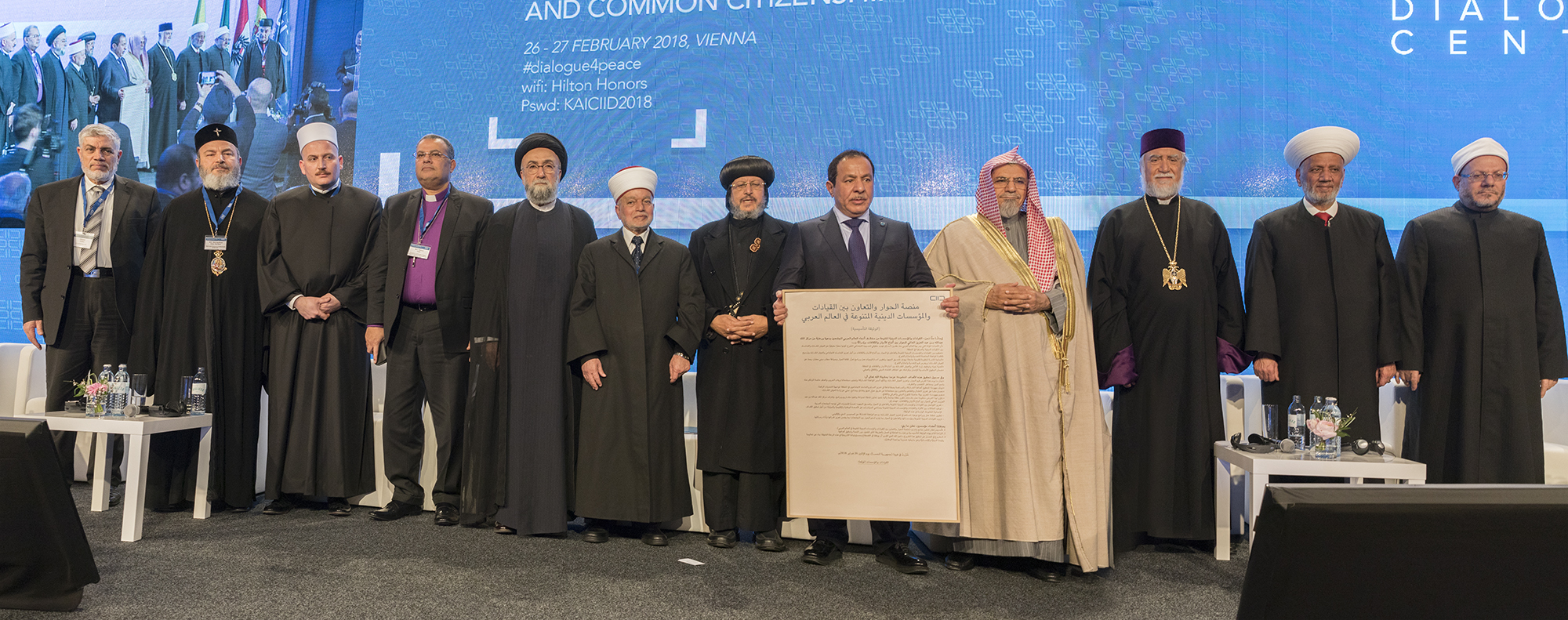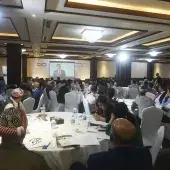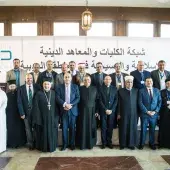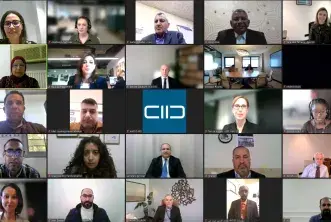Promoting Coexistence in the Arab Region

Growing violent extremism and terrorism have threatened centuries of peaceful coexistence in the Middle East. In June 2014, the Centre launched the Arab region programme through a consultative session on common citizenship. The workshop coincided with a turbulent chain of violence in Iraq and Syria. During the session, 25 religious leaders, as well as a number of religious organizations and institutions from the Arab region, gathered to discuss the implications of current developments in Arab societies and their impact on social structure – particularly within interreligious and intercultural relations.
KAICIID believes there is a gap between religious leaders and policymakers, especially in international organizations. Therefore there is an urgent need to launch a regional platform for dialogue and cooperation in the Arab region in order to support the activists, leaders and religious institutions, who are developing action strategies and working to establish the values of pluralism, religious and cultural diversity, and common citizenship.
In February 2018, KAICIID organized a global conference which brought together leading representatives from numerous religious communities to support peaceful coexistence. At the conference, the Centre launched an historic interreligious platform supported by Christian and Muslim leaders to advocate for the rights and inclusion of all communities in the Arab world. The Platform is the first interreligious dialogue platform of its kind. Planned activities of the platform include training clergy of all religions to combat hate speech, implementing initiatives which empower youth and women, and working with local and national authorities on policy which promotes social cohesion and equal rights.
Read more on United Against Violence in the Name of Religion.

To date, KAICIID has implemented several projects designed to promote peaceful coexistence and strengthen social cohesion in the Arab Region:
In cooperation with institions in the Arab Region, the Centre launched a regional training programme called Social Media as Space for Dialogue. The programme aims to build the capacity of young religious leaders and activists to use social media for the promotion of peace and dialogue. More than 400 trainees from various religious and cultural backgrounds have been trained in the Arab region.
After a series of consultative meetings, the Centre launched the Network for Religious Muslim and Christian Faculties and Institutes in the Arab World in May 2017. This is the first network of its kind, which encourages joint work between Islamic and Christian faculties and institutes, in the Arab Region and develops educational strategies in the field of interreligious and intercultural dialogue.
Under the Network umbrella and in partnership with the KAICIID International Fellows Programme, the regional Arab Fellows Programme encourages participants to promote a culture of mutual understanding in the Arab region, as well as to promote pluralism, and support the values of common citizenship.

In February 2018, KAICIID organized a global conference which brought together leading representatives from numerous religious communities to support peaceful coexistence. At the conference, the Centre launched an historic interreligious platform supported by Christian and Muslim leaders to advocate for the rights and inclusion of all communities in the Arab world. The Platform is the first interreligious dialogue platform of its kind. Planned activities of the platform include training clergy of all religions to combat hate speech, implementing initiatives which empower youth and women, and working with local and national authorities on policy which promotes social cohesion and equal rights.
The Centre has worked with its partners from the United Nations Development Program (UNDP) and the International Centre for Mediation as well as local partners in the region to implement several workshops, trainings and programmes for peaceful coexistence in the Arab Region.
Together the Centre and UNDP’s Regional Bureau for the Arab States are working together to map social cohesion in the region, and to evaluate the role religious leaders can play in resilience and conflict prevention programmes. To this end, the two organizations are collaborating on a multi-level and multi-dimensional social cohesion index which will work to build platforms for dialogue to enhance the constructive role that religious leaders can play in promoting social cohesion in the Arab region.
Projects focus on promoting intercommunal peace in communities hosting large numbers of refugees, and on addressing vulnerabilities resulting from the crisis in the Arab region, including Iraq and Syria. To help communities build resilience to conflict, the two organizations are working together with women, youth, religious leaders and the media, as agents for change.
The Centre’s current work in the Arab region began with the launching of the United Against Violence in the Name of Religion (UVNR) initiative at a historic conference in Vienna, Austria in November 2014. Under this initiative, the Centre works with high level representatives of five of the world’s major religions as well as a number of other religious leaders and institutions. In addition, the Centre partners with UNESCO, UNDP, the UN Office for the Prevention of Genocide and Responsibility to Protect, and ISESCO and various NGOs. Since the Vienna conference, KAICIID has worked to implement specific action plans aimed at achieving peaceful coexistence, solidarity and interreligious and intercultural dialogue around the world.
